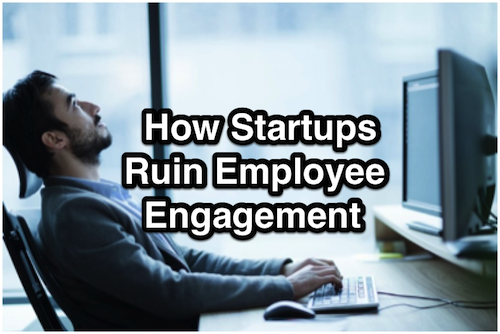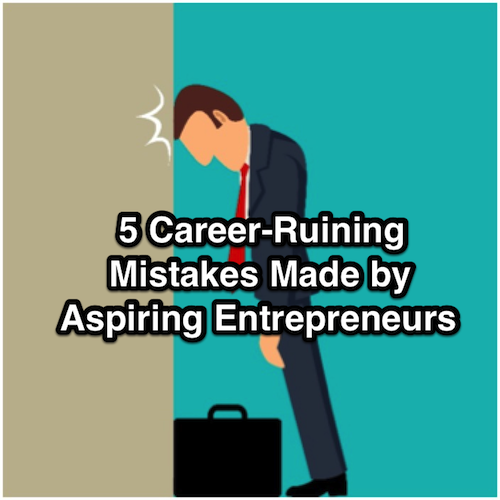
A recent Gallup poll uncovered hard data that proves – once and for all – employee engagement is essential for business growth. After observing nearly 1.4 million employees comprising about 50,000 work units, researchers were able to confirm a connection between engagement and nine major performance outcomes, including:
- Profitability
- Productivity
- Customer ratings
- Absenteeism
- Turnover
- Shrinkage/theft
Businesses that boasted the highest employee engagement were able to boost their outcomes, increasing profitability by about 22 percent, productivity by 21 percent, customer ratings by 10 percent, and other noteworthy upturns.
This study verifies the importance of engaging employees – but in its conclusion, the poll’s researchers are hesitant to provide any definitive course of action for startups and established businesses. While there is plenty of advice online to guide business leaders through engagement processes, much of this information is contradictory at best – and wrong at worst.
In fact, operating on incorrect employee engagement strategies can do extreme harm to a business, driving the best talent away and discouraging those workers that remain. Plenty of startups sabotage their own engagement efforts in the following ways:
Failing to Communicate Transparently
Anyone who has been in a relationship that lacks underlying trust should understand the importance of openness and honesty. For anyone to feel engaged in a relationship – be it workplace, romance, or otherwise — that person must be fully knowledgeable of everything going on. If employees are left uninformed of important business decisions, they will feel belittled and devalued. They will pay more attention to miscommunications and failures, and they will lose confidence in their superiors.
Many business leaders experience terror at the thought of transparency, but in truth, transparency provides more benefits than dangers. By involving employees in important business decisions – especially in establishing business values and developing a mission statement – leaders can build transparency into their business model and ensure employee engagement.
Breaking Promises to the Workforce
Another lesson business leaders can glean from personal relationships is the devastation that broken promises inflict. There is no faster way to incite ire in an employee than to make a promise and never follow through. Business leaders are often tempted to make promises in the interest of keeping the workforce happy and engaged, but if there is little chance of delivering on those promises, it is better to be honest. Employees remember broken promises forever, and they will forever be an obstacle to true employee engagement.
Treating Employees Unequally
Different employees have different tasks and goals, different authority and responsibilities. However, that doesn’t mean employees should be treated differently. Especially when it comes to engagement efforts, no single tier of employees should earn the bulk of the benefits, and absolutely no employees should be left out. Often, higher-level managers and directors are forgotten while lower-level workers swim in awards and praise; organizations must provide executive gifts as often as they offer prizes to lower-level employees.

Recognizing Work the Wrong Way
Not all recognition is equal. In fact, for more than a century, businesses have been focusing too heavily on rewarding workers with money. In fact, employees might not say so, but most perform better when they are motivated in other ways.
Business leaders must be aware of how different workers prefer to be recognized for their good work. For example, single parents might prefer extra PTO over cash bonuses, so they can spend more time with their kids; meanwhile, some workers might enjoy outside-work activities, like tickets to a sports or cultural event. Recognition with cash will only build a workforce that demands more money, so businesses must be careful to acknowledge work in more effective ways.
Providing Little or No Leadership
There’s a reason why strong businesses have plenty of middle managers: Workers need leaders to guide their productivity. Workplace teams that lack leadership are more likely to disengage from their work and find more diverting activities to enjoy on company time.
Trained leaders bring accountability to teams of workers, and leaders can more directly target engagement efforts. Small businesses that lack the funding to support a stable middle management can create leaders from their working staff. Leadership training doesn’t cost much, but it provides endless benefits to workers and workplaces alike.
Managing Time Improperly
Burnout is a diagnosable mental condition that develops when someone has little time to rest and relax. Employees experiencing burnout are often physically exhausted, forgetful, irritable, frequently sick, and – most notably for this post – disengaged from their work. Businesses that demand extra time from employees, especially during evenings and on weekends, should expect to see an increased rate of burnout cases. Therefore, business leaders should be able to prioritize tasks and avoid requesting work when employees deserve a break.
















